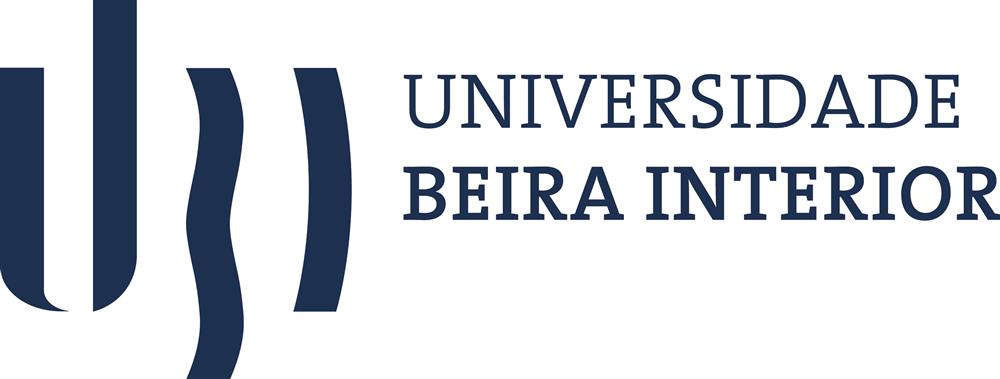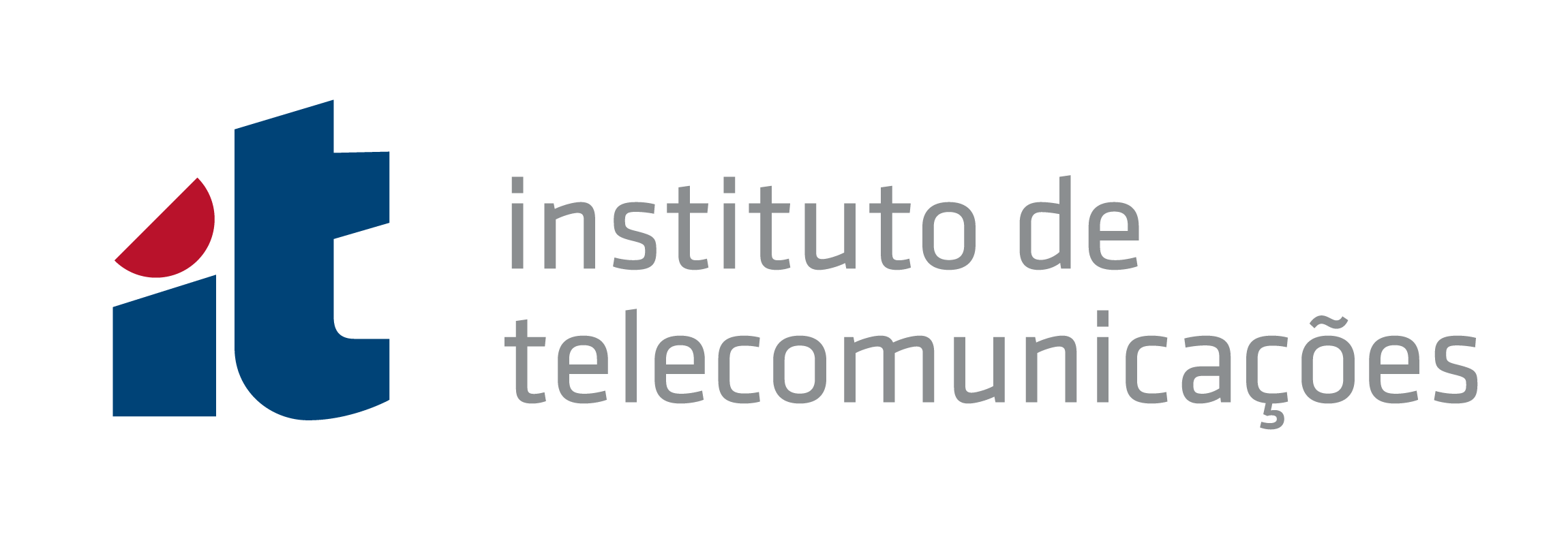 |
 
|
|---|---|
|
Mário M. Freire
|
Projeto de Tese e Seminário / Thesis Project and Seminar 2019/2020
Doutoramento em Engenharia Informática / PhD in Computer Science and Engineering
"To be great, be whole; Exclude nothing, exaggerate nothing that is not you. Be whole in everything. Put all you are
Into the smallest thing you do. So, in each lake, the moon shines with splendor Because it blooms up above."
Ricardo Reis, in "Odes", an heteronym of Fernando Pessoa (1888-1935), Portuguese poet, writer, literary critic, and translator.
Descrição da Unidade Curricular, Avaliação e Bibliografia / Course Description, Evaluation and Grading and Bibliography
Objetivos Gerais e Resultados de Aprendizagem / Course Objectives and Learning outcomes
Esta unidade curricular tem por objectivo fundamental proporcionar ao doutorando o desenvolvimento de trabalho de investigação conducente à elaboração da sua proposta de tese de doutoramento. No final da unidade curricular o estudante deve submeter e defender publicamente uma proposta de tese de doutoramento.
The aim of the course is to enable students to develop research work leading to the preparation of his/her doctoral thesis proposal. At the end of the course the student should submit and publicly defend a doctoral thesis proposal.
Programa / Syllabus
Legislação portuguesa sobre programas de doutoramento (terceiros ciclos de estudos). Perspetiva geral sobre organização e escrita de teses de doutoramento. Elaboração de um projeto de tese de doutoramento. Apresentação e defesa de um projeto de tese de doutoramento.
Portuguese legislation on doctoral programs (3rd cycle studies). Overview of organization and writing of doctoral theses. Preparation of a doctoral thesis proposal. Presentation and defense of a doctoral thesis proposal.
Actividades de Ensino-Aprendizagem e Metodologias Pedagógicas / Planned Learning Activities and Teaching Methods
As aulas de contacto desta unidade curricular são baseadas em orientação tutorial. Pretende-se debater temas baseados em artigos e documentos on-line e esclarecer dúvidas concretas apresentadas pelos estudantes sobre a elaboração do survey sobre o estado da arte num dado tópico de engenharia informática.
Língua da unidade curricular: Português ou Inglês. O suporte tutorial está disponível parcialmente em português ou parcialmente em inglês.
Lectures of this course consists of tutorials. It is intended to discuss topics based on scientific articles and online documents and clarify specific doubts presented by students on the preparation of the survey on the state of the art in a given topic of computer science and engineering.
Couse language: Portuguese or English. Tutorial support is parcially available in Portuguese or in English.
Métodos e Critérios de Avaliação / Evaluation and Grading
Regras para a Apresentação e Defesa do Projeto de Tese
1. O projeto de tese de doutoramento, em formato pdf, pode ser submetido para o docente da Unidade Curricular, através do email mario@di.ubi.pt, durante o período de ensino aprendizagem ou até ao dia limite fixado no Calendário Escolar para entrega da dissertação de 2º Ciclo, devendo ser acompanhado de uma declaração do orientador conforme o projeto está em condições de ser apresentado e discutido em provas públicas.
2. A defesa oral da proposta de tese será realizada perante um júri composto por três membros, o docente desta unidade curricular ou um membro da Comissão de Curso (Presidente do Júri), um professor de outra Universidade (membro externo), e o orientador do estudante. O júri é nomeado pela Comissão de Curso, sob proposta do docente da unidade curricular.
3. O júri é proposto pelo docente da Unidade Curricular, ouvido o Orientador, e é aprovado pela Comissão Científica de Curso.
4. A data para a defesa da proposta de tese será agendada pelo Presidente do Júri, tendo em conta a disponibilidade dos membros do júri. O docente da unidade curricular mantém um calendário das datas de defesa.
5. A defesa da proposta de tese é pública. Qualquer pessoa pode assistir, desde que existam lugares disponíveis na sala.
6. A defesa pode ser realizada com todos os membros do júri locais na sala. Os membros externos podem participar na defesa através de vídeo-conferência. Neste caso, essa informação deve ser dada com tempo suficiente ao docente da unidade curricular, para que todos os detalhes para a videoconferência possam ser tratados.
7. O tempo total para a defesa é limitado a 1 hora, com a seguinte distribuição: 20 minutos (no máximo) para a apresentação dos alunos; 40 minutos (no máximo) para a discussão da proposta.
8. Após a defesa, o estudante e todos os participantes devem sair da sala, de modo que a reunião do júri possa ter lugar.
9. Os membros do júri devem avaliar a proposta de tese e a sua defesa, avaliá-las quantitativamente numa escala de 0-20, e fornecer um panorama descritivo do trabalho/desempenho do aluno, incluindo sugestões e/ou recomendações, se necessário.
10. Após a decisão do júri, os membros do júri devem assinar a ata e entregá-la ao docente da unidade curricular.
Rules for the Presentation and Defense of the Thesis Proposal
1. The doctoral thesis project can be submitted in pdf format to the course instructor by email mario@di.ubi.pt, during the learning period or by the deadline set in the Academic Calendar for the submission of MSc dissertation, and must be accompanied by a statement from the supervisor as the project is ready to be publicly presented and discussed.
2. The oral defense of the thesis proposal will take place before a Jury composed of three members, the Instructor of this course or one member of the Study Programme Committee (President of the Jury), a professor from another University (external member), and the student advisor.
3. The jury is proposed by the course instructor, after hearing the Sudent Advisor, and is approved by the Scientific Committee of Study Program.
4. The date for the defense of the thesis proposal will be scheduled by the President of the Juri taking into account the availability of the Jury members. A calendar of the defense dates will be maintained by the Instructor.
5. The defense of the thesis proposal is public. Anyone may attend, as long as there are seats available in the room.
6. The defense may be carried out with all the local members of the Jury in the room. External members may attend the defense through video conference. In this case, that information should be given with enough time to the course Instructor, so that all details for the video conference can be arranged.
7. The total time for the defense is limited to 1 hour with the following distribution: 20 minutes (maximum) for the student presentation; 40 minutes (maximum) for the discussion of the proposal.
8. After the defense, the student and all attendees should leave the room, so that the meeting of the Jury may take place.
9. Jury members should evaluate the thesis proposal and its defense, grade it quantitatively on a 0-20 scale, and provide a descriptive outlook on the student’s work/performance, including suggestions/recommendations if appropriate.
10. After the Jury decision, the members of the Jury should sign the minute and deliver it to the Instructor.
Bibliografia ou Fontes de Informação / Recommended or Required Reading
Artigos científicos de acordo com o objecto de estudo, disponibilizados através da biblioteca do conhecimento online (B-On) subscrita pelos Serviços de Documentação – Biblioteca da Universidade da Beira Interior. Artigos e documentos online disponibilizados pelo docente e disponíveis nesta página web.
Scientific articles according to the object of study, made available by the online knowledge library (B-On) subscribed by the Documentation Services - Library of the University of Beira Interior. Articles and online documents made available by the instructor along this web page.
Plano das Aulas Teóricas / Schedule
Lecture 1 (February 20, 2020, 16:00-17:00, sala 6.18).
Sumário: Apresentação do Professor aos Estudantes. Indicação da localização do gabinete do professor e do horário de atendimento. Objectivos da unidade curricular e competências a adquirir. Conteúdos programáticos. Método de avaliação. Bibliografia de apoio à unidade curricular.
Abstract: Presentation of the Instructor to the Students. Indication of the location of the Instructor's office and office hours. Course objectives and learning outcomes. Syllabus. Evaluation and grading. Recommended or required reading.
Lecture 2 (February 27, 2020, 16:00-17:00, sala 6.18).
Sumário: Legislação portuguesa e regulamentos sobre a atribuição do grau de doutor. Competências a adquirir durante o Terceiro Ciclo de Estudos em Engenharia Informática.
Abstract: Portuguese legislation and regulations on the award of the degree of doctor of philosofy. Skills to be acquired during the Third Cycle Degree in Computer Science and Engineering.
Fontes de Informação / Required Reading:
Página Web do 3º Ciclo em Engenharia Informática da UBI.
Regulamento do Grau de Doutor da UBI.
Regulamento para Atribuição do Título de Doutoramento Europeu pela UBI.
Decreto-Lei n.º 63/2016.
Regulamento Técnico de Depósito de Teses e Trabalhos de Doutoramento e de Dissertações e Trabalhos de Mestrado.
Normas de Formatação Gráfica de Teses de Doutoramento | Templates (no fim da página).
Lecture 3 (March 5, 2020, 16:00-17:00, sala 6.18).
Sumário: Como organizar uma tese de doutoramento.
Abstract: How to organize a PhD thesis.
Fontes de Informação / Required Reading:
How to Organize your Thesis by John W. Chinneck (Carleton University, Canada).
How to Write a Dissertation by Douglas E. Comer (Purdue University).
PhD Thesis Structure and Content by Christopher D. Clack (University College London, UK).
How To Write a Good (no, Great) PhD Dissertation by Priya Narasimhan (Carnegie Mellon University).
The Form of the PhD Dissertation (Harvard University).
How to Write Up a Ph.D. Dissertation by Jason Eisner (Johns Hopkins University).
How to Write a PhD Thesis (University of New South Wales, Australia).
Writing the Dissertation (Sheffield Hallam University).
Writing the Dissertation (University of Leicester).
Writing the Dissertation in Atherton J S (2013) Doceo; Angles on learning and teaching at college, university and professional levels.
Notes on the Structure of a Dissertation by Tara Brabazon (University of Brighton).
Lecture 4 (March 12, 2020, 16:00-17:00, sala 6.18).
Sumário: Como organizar uma tese de doutoramento baseada em artigos.
Abstract: How to write a PhD thesis as a set of articles.
Fontes de Informação / Required Reading:
Guidelines for Preparation of Articles Format Theses/Dissertation, University of New Brunswick, Canada.
The ‘three papers’ PhD thesis: a guide for the perplexed, Athens University of Economics and Business, Greece.
Lecture 5 (March 19, 2020, 16:00-17:00, sala 6.18).
Sumário: Como classificar uma tese de doutoramento.
Abstract: How to grade a dissertation.
Fontes de Informação / Required Reading:
How To Grade a Dissertation by Barbara Lovitts in Academe, pages 18-23, November/December 2005.
Lecture 6 (March 26, 2020, 16:00-17:00, sala 6.18).
Sumário: Como escrever o argumento da tese de doutoramento.
Abstract: How to write a thesis statement.
Fontes de Informação / Required Reading:
How To Write a Thesis Statement (Indiana University).
Writing A Thesis Statement.
Tips and Examples for Writing Thesis Statements (Pardue University).
Thesis and Purpose Statements (University of Wisconsin-Madison).
Guide to Writing Thesis Statements (University of Washington).
Thesis Statements (University of North Carolina at Chapel Hill).
Thesis Statement Builder.
Lecture 7 (April 2, 2020, 16:00-17:00, sala 6.18).
Sumário: Como escrever a introdução da tese de doutoramento.
Abstract: How to write a thesis introduction.
Fontes de Informação / Required Reading:
Introductions, The Writing Center at UNC-Chapel Hill.
Introducing work, The University of Manchester.
Writing Chapter 1: The Introduction of Your Capstone Project, Doctoral Dissertation, Or Masters Thesis, dissertationwriting.
Writing your introduction, mondofacto.
How to Write a Thesis Introduction, Course-Works.
How to Write a Dissertation Introduction, Proofreading, editing & writing services.
Writing your thesis introduction, conclusion, and abstract, Crawford School of Public Policy. Leaving Your Thesis Introduction Till Last? It Could be a Mistake…, PhD JamesHayton.
Lecture 8 (April 16, 2020, 16:00-17:00, sala 6.18).
Sumário: Como escrever a conclusão da tese de doutoramento.
Abstract: How to write a thesis conclusion.
Fontes de Informação / Required Reading:
Conclusions, The Writing Center at UNC-Chapel Hill.
Writing the Conclusion Chapter: the Good, the Bad and the Missing , Joseph Assan, University of Liverpool.
Writing Conclusions, The University of Manchester.
Writing Conclusions, Indiana University.
Write your conclusions, Monash University.
How to Write an Effective Conclusion a Writing Centre Handout, Wilfrid Laurier University, Canada.
Conclusions in Honours Theses, UNSW, Australia.
Strategies for Writing a Conclusion, St. Cloud State University.
Lecture 9 (April 23, 2020, 16:00-17:00, sala 6.18).
Sumário: Como elaborar e organizar o projeto de tese de doutoramento.
Abstract: How to write a thesis proposal.
Fontes de Informação / Required Reading:
Dissertation Proposal (Stanford University).
How to Write a Thesis Proposal (University College London).
Hints for Writing a PhD Proposal by Angelos Keromytis (April 2010) (Columbia University).
Ph.D. Research Proposal-Doctoral Program in Information Science and Technology (University of Coimbra).
PhD Thesis Proposal-PhD Program in Computer Science (New University of Lisbon).
Writing a Good PhD Proposal–Some Guidelines by Audra Mitchell (University of York).
Lecture 10 (April 30, 2020, 16:00-17:00, sala 6.18).
Sumário: Elaboração do projeto de tese de doutoramento.
Abstract: Elaboration of the doctoral thesis proposal.
Lecture 11 (May 7, 2020, 16:00-17:00, sala 6.18).
Sumário: Elaboração do projeto de tese de doutoramento.
Abstract: Elaboration of the doctoral thesis proposal.
Lecture 12 (May 14, 2020, 16:00-17:00, sala 6.18).
Sumário: Elaboração do projeto de tese de doutoramento.
Abstract: Elaboration of the doctoral thesis proposal.
Lecture 13 (May 21, 2020, 16:00-17:00, sala 6.18).
Sumário: Elaboração do projeto de tese de doutoramento.
Abstract: Elaboration of the doctoral thesis proposal.
Lecture 14 (May 28, 2020, 16:00-17:00, sala 6.18).
Sumário: Elaboração do projeto de tese de doutoramento.
Abstract: Elaboration of the doctoral thesis proposal.
Lecture 15 (June 4, 2019, 14:00-15:00, sala 6.18).
Sumário: Elaboração do projeto de tese de doutoramento.
Abstract: Elaboration of the doctoral thesis proposal.
“One of the problems of being a pioneer is you always make mistakes and I never, never want to be a pioneer. It’s always best to come second when you can look at the mistakes the pioneers made”.
Seymour Cray (1925-1996), Public Lecture at Lawrence Livermore Laboratories on the introduction of the CRAY-1, 1976.
Last update: 2020/02/20.